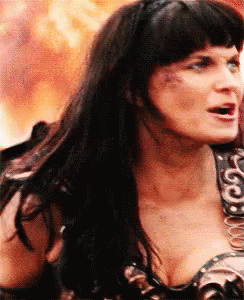Warm take: scale vs. scope

When I was a young manager, I remember telling my boss how surprised I was to learn that so much of business was about people’s feelings. He laughed, kindly, and said something like, “Yes. It’s everything.” I imagine he went home that day, and told his wife, “You’ll never believe what Libby said today.”
I grew. Today, I know that excellent people managers figure out how make space for whole human beings, at every step, and in every process. Some of your work is professional care work.
Managing work might be about scale or scope. Scale applies to repeatable tasks. Scope is variety, nuance.
Some management work can scale; maybe everyone with the same job title has similar goals. Yet, team members have unique identities, personal goals, home lives, temperaments, learning styles, levels of experience, and so forth – attention to all of this (and more) is the care work of management.
Care does not scale. You may know this, viscerally, if you’ve been responsible when someone dear to you needs care. Effective care requires you to perceive and navigate scope. It’s playing the notes, and the space between the notes.
Managerial care work requires you to see beyond the work to be done, and fully accept the human needs of the people on your team who are doing the work. You've got to balance the full variety of needs (and wants.) In part, you must create healthy boundaries.
A dead simple example: an early-stage CEO asked me, “What should I do when everyone goes to the bar after work? I know I shouldn't be everyone’s friend, but I don’t want to be a jerk.” I told him to go out with the team. Once in a while. And not to get drunk, and (usually) be the first to leave.
While poking around for a good resource to share on boundaries for managers, I found many articles about setting boundaries to prevent burnout. (Yes, important.)
I didn't find anything I liked about good boundaries for a manager-managee relationship. As this is one of my Warm Takes, I let it go. For now.
To paraphrase an article for teachers, which you'll find below in Links: you’re a manager. Not a friend, therapist, or family member.
Increasingly, we have to think about our boundaries with respect to the systems we're working in. You and your co-workers are not machines – technology and automation should serve all of you.
Attempts to scale our humanity are, at best, foolish.
Question
How do you set/maintain boundaries at work? Write to me! I love hearing from you all, and I'm on the lookout for better resources on this important topic.
I also welcome your recommendations for my (nearly) annual Summer Reading edition, coming soon. What are you reading, watching, listening to?
Today's Warm Take was written last weekend, while I was pounding caffeine and attempting to navigate an elderly family member's interaction with the health care system, an endeavor I do not recommend. Emphatically. Polished this morning while drinking my first cup of coffee, before I head back out into the same battle.
As with my other Warm Takes, I will likely find typos and more, which I'll correct later on, on the Internet.
May you and your loved ones be safe, healthy, and free.
Links
- Leaked documents reveal patient safety issues at Amazon’s One Medical, by Caroline O'Donovan, June 15, 2024. The Washington Post reports that Amazon's One Medical routed calls from seniors seeking medical care to a call center where workers did not have medical training.
- This will be surprising to exactly nobody who read Kristi Coulter's 2023 memoir about her days at Amazon, which I wrote about in March, 2024.
- How to Define Boundaries with Your Students—and Stick to Them, by Amanda Wyrick, Harvard Business Publishing, Education, August 28, 2022. “I am the student’s teacher. I am not the student’s friend, parent, or counselor. I need to establish what it means to be the person’s professor and then maintain those boundaries.” One of the gems in this article about how professors should manage their relationships with students. How do we establish what it means to be someone's manager?
- The Amazon that Customers Don't See, by Jodi Kantor, Karen Weise, and Grace Ashford at The New York Times, from June, 2021, describes an workplace where managers (who may care) are obscured by systems and technology (that do not care.) NB: you can't care enough to effectively demonstrate care in a crappy system.
I don't know if I'll ever forget Ann Castillo's attempts to retain medical benefits for her husband, Alberto as he battled Covid and its effects. I recently learned that Mr. Castillo has died. I am so sorry.
I mentioned this NYT story in a couple of newsletter issues:- Warm Take: Performance of Care. July 25, 2021. Who is entitled to care in the workplace?
- Warm Take: Surrender Dorothy, April 3, 2022. On the fight apparently required to be treated well at work, specifically at Amazon.
